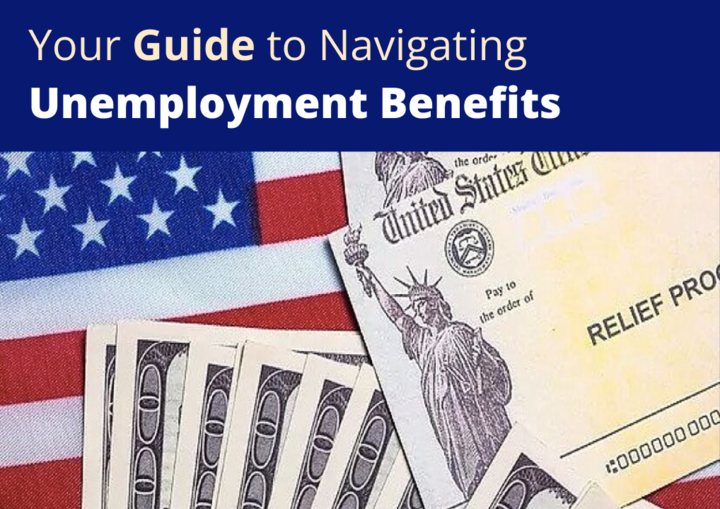To effectively manage your finances, it is crucial to have a clear understanding of your spending habits. This involves taking a close look at where your money goes each month, which can reveal patterns that may not be immediately obvious. For instance, you might find that a significant portion of your income is allocated to dining out or subscription services.
By tracking your expenses over a few months, you can categorize them into essentials, such as housing and groceries, and non-essentials, like entertainment and luxury items. This categorization not only helps in identifying areas where you might cut back but also provides insight into your lifestyle choices and priorities. Moreover, understanding your spending habits can aid in creating a realistic budget.
A budget is not merely a tool for restriction; it is a framework that allows you to allocate funds toward your goals while still enjoying life.
For example, if you discover that you spend excessively on coffee shops, you might decide to limit those outings and redirect the savings toward a more significant financial goal, such as saving for a vacation or paying off debt.
By being mindful of your spending patterns, you can make informed decisions that align with your financial aspirations.
Key Takeaways
- Understanding your spending habits is crucial in managing your finances effectively.
- Identifying your financial goals will help you prioritize and plan for your future.
- When comparing different credit card options, consider the rewards, fees, and interest rates.
- Evaluate the rewards and benefits offered by each credit card to maximize your benefits.
- Consider the interest rates and fees associated with each credit card to avoid unnecessary costs.
Identifying Your Financial Goals
Articulating Your Goals
It is essential to articulate these goals clearly, as they will serve as the guiding principles for your financial decisions. For instance, if your goal is to purchase a home within five years, you will need to consider how much you need to save for a down payment and what monthly expenses you can afford.
Setting SMART Goals
Setting specific, measurable, achievable, relevant, and time-bound (SMART) goals can enhance your focus and motivation. Instead of vaguely stating that you want to save money, you might specify that you aim to save $20,000 for a down payment by the end of five years.
Achieving Your Goals
This clarity allows you to break down the larger goal into smaller, manageable milestones, making it easier to track your progress and adjust your strategies as needed. Additionally, having well-defined financial goals can help you prioritize your spending and make choices that align with your long-term vision.
Comparing Different Credit Card Options
In today’s financial landscape, credit cards are ubiquitous and can offer various benefits when used wisely. However, not all credit cards are created equal; they come with different features, rewards programs, and fees. When comparing credit card options, it is essential to consider what aspects are most important to you.
For example, if you travel frequently, a card that offers travel rewards or points redeemable for airline miles may be more beneficial than one that provides cash back on everyday purchases. Additionally, it is vital to examine the terms and conditions associated with each card. Some credit cards may offer enticing rewards but come with high annual fees or unfavorable interest rates.
Reading the fine print can help you avoid hidden costs that could negate the benefits of the rewards program. Furthermore, consider the flexibility of the rewards; some cards allow points to be transferred to various loyalty programs, while others may limit redemption options. By thoroughly comparing different credit card options, you can select one that aligns with your spending habits and financial goals.
Evaluating Rewards and Benefits
When evaluating credit card rewards and benefits, it is essential to look beyond the surface-level appeal of promotional offers. Many credit cards advertise lucrative sign-up bonuses or high reward rates in specific categories; however, understanding how these rewards work in practice is crucial. For instance, some cards may offer 5% cash back on groceries but only up to a certain spending limit each quarter.
If your grocery bills exceed this limit, you may not receive the full benefit advertised. Moreover, consider how often you will realistically use the card and whether the rewards align with your spending patterns. If you rarely travel but frequently dine out, a card that offers travel rewards may not be as beneficial as one that provides cash back on restaurant purchases.
Additionally, assess any additional perks that come with the card, such as purchase protection, extended warranties, or travel insurance. These benefits can add significant value beyond just the rewards points and should be factored into your overall evaluation of the card.
Considering Interest Rates and Fees
Interest rates and fees are critical components of any credit card agreement and can significantly impact your overall financial health. The annual percentage rate (APR) determines how much interest you will pay on any outstanding balance if you do not pay it off in full each month. A high APR can quickly turn manageable debt into an overwhelming burden if you carry a balance.
Therefore, it is advisable to compare the APRs of different cards and choose one that offers a competitive rate. In addition to interest rates, be aware of other fees associated with credit cards. These may include annual fees, late payment fees, foreign transaction fees, and balance transfer fees.
Some cards may waive the annual fee for the first year but charge it thereafter; understanding these nuances can help you avoid unexpected costs down the line. If you plan to use your card primarily for purchases abroad, look for one that does not charge foreign transaction fees. By carefully considering interest rates and fees, you can select a credit card that minimizes costs while maximizing benefits.
Assessing Your Credit Score
Your credit score plays a pivotal role in determining not only your eligibility for credit cards but also the terms you will receive. A higher credit score typically translates to better interest rates and more favorable terms on credit products. Therefore, it is essential to regularly check your credit score and understand the factors that influence it.
These factors include payment history, credit utilization ratio, length of credit history, types of credit accounts, and recent inquiries. If your credit score is less than stellar, it may be wise to take steps to improve it before applying for new credit cards. This could involve paying down existing debt, making timely payments on all accounts, or disputing any inaccuracies on your credit report.
Many financial institutions offer free access to your credit score along with tools to help you understand how different actions can impact it. By being proactive about managing your credit score, you can position yourself for better financial opportunities in the future.
Seeking Professional Advice
Navigating the complexities of personal finance can be daunting, especially when it comes to choosing the right credit card or managing debt effectively. Seeking professional advice from a financial advisor or credit counselor can provide valuable insights tailored to your unique situation. These professionals can help you assess your financial health comprehensively and guide you in making informed decisions about credit products.
A financial advisor can assist in creating a personalized financial plan that aligns with your goals while considering factors such as risk tolerance and investment strategies.
On the other hand, a credit counselor can provide specific advice on managing debt and improving your credit score.
They may also offer workshops or resources on budgeting and responsible credit use.
Engaging with professionals in the field can empower you with knowledge and strategies that enhance your financial literacy and decision-making capabilities.
Making an Informed Decision
After thoroughly researching and evaluating various aspects of credit cards—such as spending habits, financial goals, rewards programs, interest rates, fees, and credit scores—you are now equipped to make an informed decision. It is essential to take your time during this process; rushing into a decision could lead to regret later on. Consider creating a pros and cons list for each card option based on your findings to visualize which card aligns best with your needs.
Once you’ve made your choice, ensure that you understand all terms associated with the card before applying. This includes knowing how to maximize rewards while avoiding pitfalls like high-interest charges or excessive fees. After obtaining the card, continue monitoring its performance relative to your expectations and adjust your strategy as necessary.
By taking these steps thoughtfully and deliberately, you can leverage credit cards as powerful tools in achieving your broader financial objectives while maintaining control over your spending habits.
FAQs
What factors should I consider when choosing a credit card?
When choosing a credit card, it’s important to consider your spending habits, credit score, rewards and benefits, fees, and interest rates.
How can I determine my spending habits?
To determine your spending habits, review your past credit card statements and categorize your expenses. This will help you understand where you spend the most and what type of rewards or benefits would be most valuable to you.
What are the different types of rewards and benefits offered by credit cards?
Credit cards offer various rewards and benefits such as cash back, travel rewards, points for purchases, sign-up bonuses, and perks like airport lounge access, travel insurance, and purchase protection.
What fees should I be aware of when choosing a credit card?
Common fees associated with credit cards include annual fees, late payment fees, foreign transaction fees, balance transfer fees, and cash advance fees. It’s important to consider these fees when choosing a credit card.
How do interest rates impact my credit card choice?
Interest rates can significantly impact the cost of carrying a balance on a credit card. It’s important to choose a credit card with a low interest rate if you anticipate carrying a balance from month to month.
What is the importance of my credit score when choosing a credit card?
Your credit score plays a crucial role in determining the type of credit card you qualify for and the interest rate you’ll receive. A higher credit score can help you qualify for premium credit cards with better rewards and benefits.







